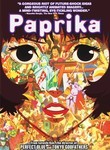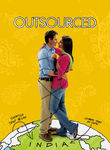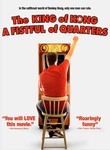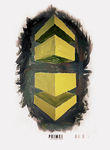It was relatively easy, although still more difficult than I would have guessed, to hook my bespoke website's Atom feed up to Google Buzz. I already have a Google email account and associated profile so Buzz just showed up in my Gmail interface. Setting it up it offered to connect to my YouTube account or my Google Chat account but I didn't see an option to connect to an arbitrary RSS or Atom feed like I expected.
But of course hooking up an arbitrary Atom or RSS feed is documented. You hook it up in the same manner you claim a website as your own via the Google Profile (for some reason they want to ensure you own the feed connected to your Buzz account). You do this via Google's social graph API which uses XFN or FOAF. I used XFN by simply adding a link to my feed to my Google profile (And be sure to check the 'This is a profile page about me' which ensures that a rel="me" tag is added to the HTML on your profile. This is how XFN works.) And by adding a corresponding link in my feed back to my Google profile page with the following:
atom:link rel="me" href="http://www.google.com/profiles/david.risney"So more difficult than I would have expected (more difficult than just an 'Add your feed' button and textbox) but not super difficult. And yet after reading this Buzz from DeWitt Clinton I feel better about opting-in to Google's Social API.
Sarah and I just got back home from a Eric and Jane's wedding / Sarah and Dave's vacation trip to the Bahamas (note the lack of activity for the past twelve days on my website). I've got plenty of photos and things to post but for now I'll just relate this humorous anecdote during the rehearsal dinner. I had said something about photos to Jim, Eric's brother and he gave me a crazy look. "Oh, I thought you meant like pho-tos" he said. It took me a moment to realize he misunderstood what I said as "faux toes". I laughed until I cried a little. Also works with digital faux toes.
I was reading Makers, Cory Doctorow's latest novel, as it was serialized on Tor's website but with no ability to save my place within a page I set out to find a book reading app for my G1 Android phone. I stopped looking once I found Aldiko. Its got bookmarks within chapters, configurable fonts, you can look-up words in a dictionary, and has an easy method to download public domain and creative common books. I was able to take advantage of Aldiko's in-app book download system to get Makers onto my phone so I didn't have to bother with any conversion programs etc, and I didn't have to worry about spacing or layout, the book had the correct cover art, and chapter delimiters. I'm very happy with this app and finished reading Makers on it.
 Makers is set in the near future and features teams of inventors, networked 3d printers, IP contention, body modifications, and Disney -- just the sort of thing you'd expect from a Cory
Doctorow novel. The tale seems to be an allegory for the Internet including displacing existing businesses and the conflict between the existing big entertainment IP owners and the plethora of fans
and minor content producers. The story is engaging and the characters filled out and believable. I recommend Makers and as always its Creative Commons so go take a look right now.
Makers is set in the near future and features teams of inventors, networked 3d printers, IP contention, body modifications, and Disney -- just the sort of thing you'd expect from a Cory
Doctorow novel. The tale seems to be an allegory for the Internet including displacing existing businesses and the conflict between the existing big entertainment IP owners and the plethora of fans
and minor content producers. The story is engaging and the characters filled out and believable. I recommend Makers and as always its Creative Commons so go take a look right now.
 QFC, the grocery store closest to me, has those irritating shoppers cards. They try to motivate me to use it with
discounts, but that just makes me want to use a card, I don't care whose card and
I don't care if the data is accurate. They should let me have my data or make it useful to me so that I actually care.
QFC, the grocery store closest to me, has those irritating shoppers cards. They try to motivate me to use it with
discounts, but that just makes me want to use a card, I don't care whose card and
I don't care if the data is accurate. They should let me have my data or make it useful to me so that I actually care.
I can imagine several useful tools based on this: automatic grocery lists, recipes using the food you purchased, cheaper alternatives to your purchases, other things you might like based on what you purchased, or integration with dieting websites or software. At any rate, right now all I care about is getting the discount from using a card, but if they made the data available to me then the grocery store could align our interests and I'd want to ensure the data's accuracy.
I like the idea of QR codes, encoding URLs and placing them
on real world objects, but the QR codes themselves are kind of ugly. To make them less obvious I thought I could spray QR codes on to an object with an infrared reflective paint and shine infrared
light on the QR codes, since most cameras, for instance the camera in my G1 phone, pick up infrared that our eyes do not.
In my search for infrared paint I've found a seller of IR ink (via programming forum) and an Infrared Paint Recipe (via IR FAQ).
In looking for this paint I've found that it comes up a lot in relation to the military for things like paint markers that are visible at night with proper equipment, and paint that absorbs IR light to make vehicles less obvious to night vision goggles. Even though the first reflects infrared light and the second absorbs it websites end up refering to both as infrared paint which made it difficult to search.
Additionally I found links to some other geeky infrared projects:







Netflix lets you watch a subset of their movies online via their website and a subset of those movies are available to watch on the Xbox 360's Netflix app. so its not always easy to find movies to watch on Xbox 360. Yet, I regularly see my Xbox friends using the Netflix app and its a shame they didn't make an easy way to share movie recommendations with your friends. Instead we must share movie recommendations the old fashioned way. Here's the movies I've found and enjoyed on my 360.



On the topic of made up words: I get made up words for made up things, but there's already a name for cell-phone in English: its "cell-phone". The narrator notes that the book has been translated into English so I guess I'll blame the fictional translator. Anyway, I wasn't bothered by the made up words nearly as much as some folk. Its a good thing I'm long out of college because I can easily imagine confusing the names of actual concepts and people with those from the book, like Hemn space for Hamming distance. Towards the beginning, the description of slines and the post-post-apocalyptic setting reminded me briefly of Idiocracy.
Recently, I've been reading everything of Charles Stross that I can, including about a month ago, The Jennifer Morgue from the surprisingly awesome amalgamation genre of spy thriller and Lovecraft horror. Its the second in a series set in a universe in which magic exists as a form of mathematics and follows Bob Howard programmer/hacker, cube dweller, and begrudging spy who works for a government agency tasked to suppress this knowledge and protect the world from its use. For a taste, try a short story from the series that's freely available on Tor's website, Down on the Farm.
Coincidentally, both Anathem and the Bob Howard series take an interest in the world of Platonic ideals. In the case of Anathem (without spoiling anything) the universe of Platonic ideals, under a different name of course, is debated by the characters to be either just a concept or an actual separate universe and later becomes the underpinning of major events in the book. In the Bob Howard series, magic is applied mathematics that through particular proofs or computations awakens/disturbs/provokes unnamed horrors in the universe of Platonic ideals to produce some desired effect in Bob's universe.